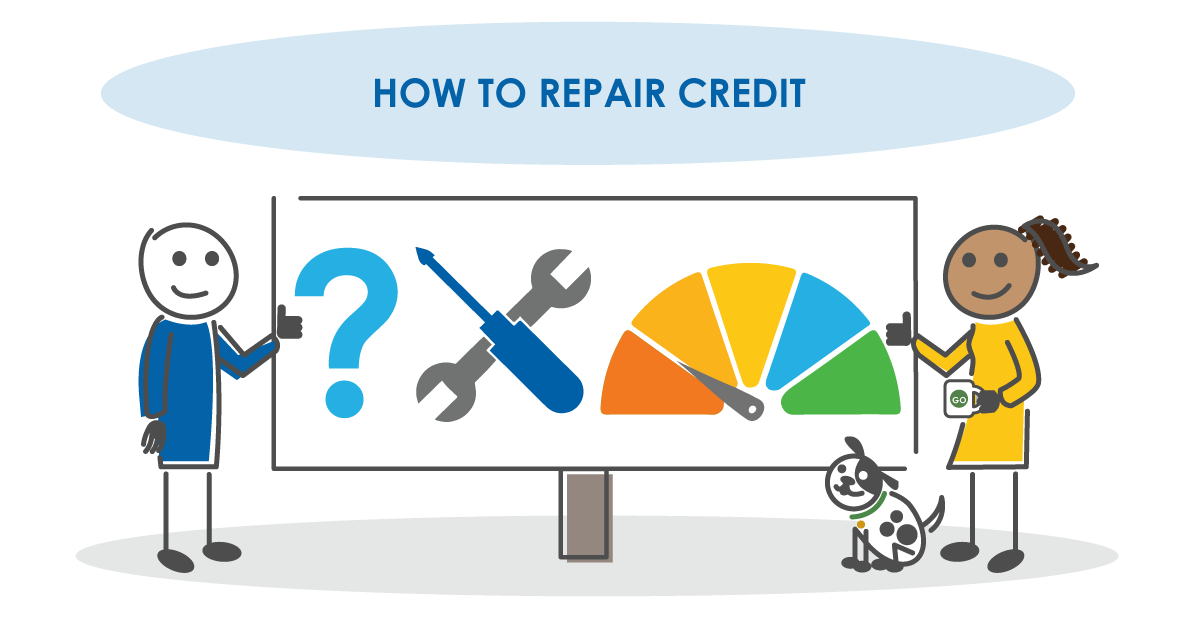
You don’t have to put up with the dark cloud of bad credit hanging over you as you make your way through life – there are things you can do to repair and improve your credit score yourself. The best bit is you can start doing this today, and you won’t have to shell out for the privilege.
Let’s take a look at how to repair a credit score and get your financial reputation back on track.
Check your credit report and ensure it’s correct and up to date
Keeping tabs on your own credit score is vitally important, especially if you might be looking to lend in the future. You can do this via the three main credit scoring agencies in the UK: Equifax, Experian and TransUnion.
All of these agencies hold information on you to build your credit file or credit report, which lenders, such as us, use to determine your eligibility for borrowing money. This includes everything from your address to the types of credit you’ve received and your payment history against them.
This information can be slightly different with each organisation as well, so be sure to check out your credit file with all three – it’s totally free to access via their partner websites:
- Equifax: ClearScore
- Experian: MSE’s Credit Club
- TransUnion: Credit Karma
Whether you need to ensure your address is stored correctly or check all historical payments for accuracy, take the time to ensure that your reports are error-free. You can dispute any errors regarding late payments, for instance, so it pays to go through your records with a fine tooth comb.
Don’t use credit repair companies that promise the world
One of the main things to be wary off when trying to improve your credit score is paying an expensive credit repair company to do it for you. Many of the services they offer cannot legally be carried out by them and, in fact, you can handle it yourself for free anyway. Don’t be drawn in by grand claims that will ‘fix’ your credit score.
Don’t keep applying for credit if you’ve been turned down before
If you get turned down for credit by one company, it wouldn’t be wise to follow it up with another application elsewhere. There’s a danger of giving lenders the impression that you’re a high-risk customer if you’re making multiple applications for different types of credit. These can show up as ‘hard inquiries’ or a credit footprint on your report, which appear when lenders look into your score to check how suitable you are for a credit product.
The more hard inquiries there are, the higher risk you could be as a customer, so try to hold off and work on improving your score instead.
Keep on top of your bills and keep in touch with your providers
Perhaps the best thing you can do to positively affect your credit score is keep paying your bills on time. We understand it can be difficult to manage, but you should try to do everything you can to keep on top of your financial commitments each month.
If it looks like you won’t be able to make certain payments at any point, make sure you get in touch with your providers in sufficient time, so they’re made aware. They might be able to arrange a different payment plan for you and, of course, it’s better than the alternative: leaving them to chase you to square up your account.
Late payments directly affect your credit score; the later they are, the greater the impact, so try not to let any payments exceed the typical 30-day limit.
Don’t use all the credit available to you if/when you have it
Your credit score is partly calculated using the amount of credit you are utilising at any one time. If, for instance, you have borrowed and are consistently using 75% of the credit available to you, your credit utilisation will be high and your credit score will be damaged as a result.
If you can keep your credit utilisation relatively low, you’ll increase the chances of lenders looking favourably upon your applications in future because it’ll show you’re in control of your credit.
Don’t close credit accounts that you have settled and aren’t using
On a related note, you can help protect your credit score by not closing accounts you’ve already settled. It might seem counterintuitive, but it makes sense when you consider it in the context of your credit utilisation: if you have more credit available to you, but you’re using less of it, your utilisation will stay low, and your score will benefit as a result.
If you’re worried about being tempted by an open line of credit, be sure to stick your card in a drawer at home and remove your account details from any online accounts or digital wallets. Slowly, but surely, you’ll forget it exists.
Remain mindful during future applications for credit
A history of poor credit can affect the outcomes of any future applications and, indeed, the amount of interest you’ll pay if successful. If you repeatedly make excessive borrowing requests that don’t align with your credit record, you’ll be waving huge red flags to potential lenders. If you take a more conservative approach, though, and show that you’re planning to live within your means (and your recent credit rating indicates that you can), you’ll likely increase your chances of success.
When it comes to applying for car finance with bad credit, for instance, the deposit you put down, the repayment period you request and even the car you choose to drive can affect your interest rates, so be sure to take care if you decide to make an application.
If you want to find out more about credit and the real-world impact of your financial reputation, dive into our comprehensive credit guides here.



